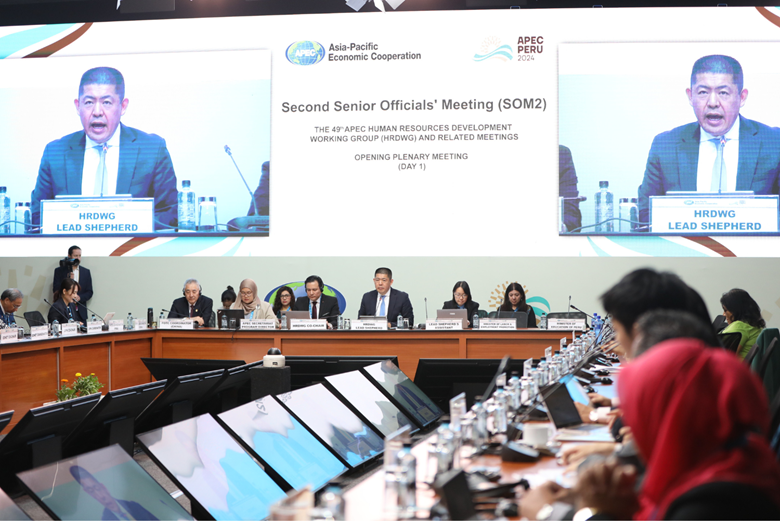APEC Commits to Empowering People with Disabilities

APEC member economies through the Human Resources Development Working Group endorsed the Arequipa Goals, aiming to advance impactful progress through policies that empower people with disabilities for sustainable and inclusive growth.
“We must recognize the valuable contributions of people with disabilities to development in the region,” said Zhao Li, the lead shepherd of APEC Human Resources Development Working Group (HRDWG).
“We must ask if we have helped create learning and economic opportunities for our own economy, and more importantly, if we have helped create opportunities for those who are less fortunate than we are in the extended APEC family.”
“We are here to seek opportunities to change lives, improve communities, and be the voice of the voiceless,” Li added.
Through the Arequipa Goals, member economies will expand participation in education programs for people with disabilities in rural public schools by 2030 in line with the 2030 Agenda for Sustainable Goals.
“Although APEC has seen a significant amount of progress in this area, there is still a lot of work to do if we want to make our work more relevant for a huge segment of our societies that are still being left out, that still remain invisible, that still are out of reach of our policies and strategies that aim to benefit from them,” said Ambassador Carlos Vasquez, the 2024 Chair of APEC Senior Officials’ Meeting.
Delivering his remarks at the meeting on Wednesday in Arequipa, Ambassador Vasquez reminded members of the people who would like to hear about actions that are being taken by APEC to help them achieve their full potential, noting that “failing their hopes and aspirations should not be an option for us.”
“With the adoption of the Arequipa Goals, APEC has attained a new landmark, now in favor of people with disabilities the Asia-Pacific region,” Ambassador Vasquez added.
“APEC economies have assumed the commitment of gradually expanding access to education programs for disabled people, empower them to pursue employment and entrepreneurial opportunities and including them in the formal labor market.”
The goals seek to increase the percentage of qualified special education teachers in rural areas, as well as improve vocational training programs and the participation of people with disabilities in these programs by 2030.
Members also will promote policies that aim to increase the participation of people with disabilities in the formal labor market by 2030 and highlight the productive role they play and the contributions they make to economic growth.
“The future of any economy depends on how it nurtures its human talents and spirit.” said Dr Rebecca Sta Maria, Executive Director of APEC Secretariat.
“No APEC working group can achieve any measure of success without the requisite focus on its talent. With the Arequipa Goals, the HRDWG has set a standard for us in APEC to promote equality and inclusion for people with disabilities, recognizing their valuable contributions to development in the region,” Dr Sta Maria added.
Member economies will also endeavor to extend social protection coverage for people with disabilities, including those in rural areas and informal sectors by 2030.
For further details, please contact:
APEC Media at [email protected]

